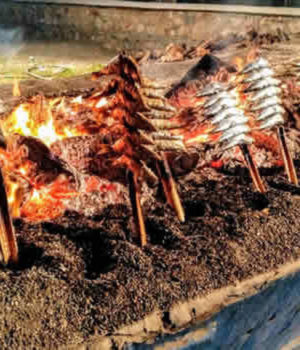With the summer the risk of food poisoning increases. The increase in temperature causes more cases of food poisoning to appear. To avoid all this, from Gastronomic Information we give you some tips to reduce this risk both in summer and throughout the year.
Cleanliness and common sense, as well as taking into account that the high temperatures of this season accelerate the decomposition processes reign in these tips that we send you to avoid summer digestive problems.
The moment to buy is a crucial moment. First of all, all products that have any symptoms of poor condition must be discarded, that is, check that the container is in good condition, that it is not rusty or bulging, as well as its expiration date. Significant discounts are currently being made to avoid food waste in the food chain. This fact does not imply that spoiled food can be sold. If it is important, these foods are bought, which can be consumed preferentially and taking into account that they are already in their final phase of consumption.
Once the product is purchased, we must preserve it properly. In summer we must have the refrigerator at less than 4ºC and the freezer at less than -18ºC. Do not break the cold chain and go from the purchase to your home. In conservation it is important to avoid cross contamination, not mix food and protect it well and with clean containers.
Hygiene and cooking the best allies for food poisoning.
Frequent hand washing is important when handling food. Also clean utensils well, especially cutting boards and knives. We should not use the same containers if they are not previously cleaned to keep them fresh and once they are prepared, especially for meat and fish. Wash fruits and vegetables and keep them clean and clean them before eating.
If you must defrost any food, do it, in summer, in the refrigerator. High temperatures accelerate this process and create unnecessary risks for the development of microorganisms.
Cooking, that is, high temperatures, is a great destroyer of microorganisms. Cook the food well and with enough time, there should be no raw parts and other burnt parts due to haste that can leave contaminated parts in the preparation. The food must reach around 70ºC throughout the product in order to destroy these microorganisms.
Finally, if any product looks bad or you raise suspicions due to its smell, taste or appearance, throw it away.







